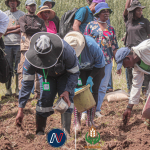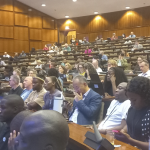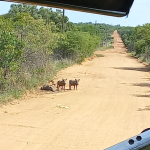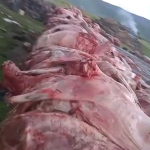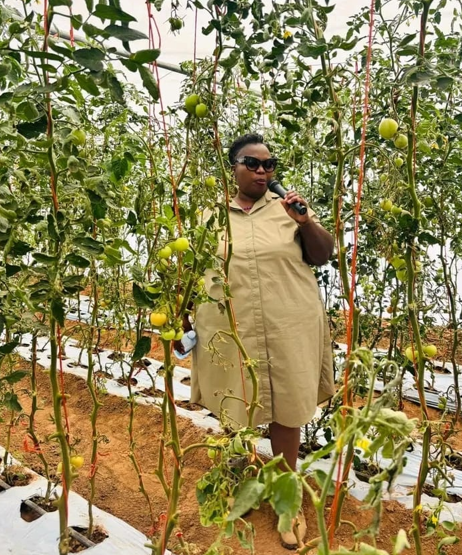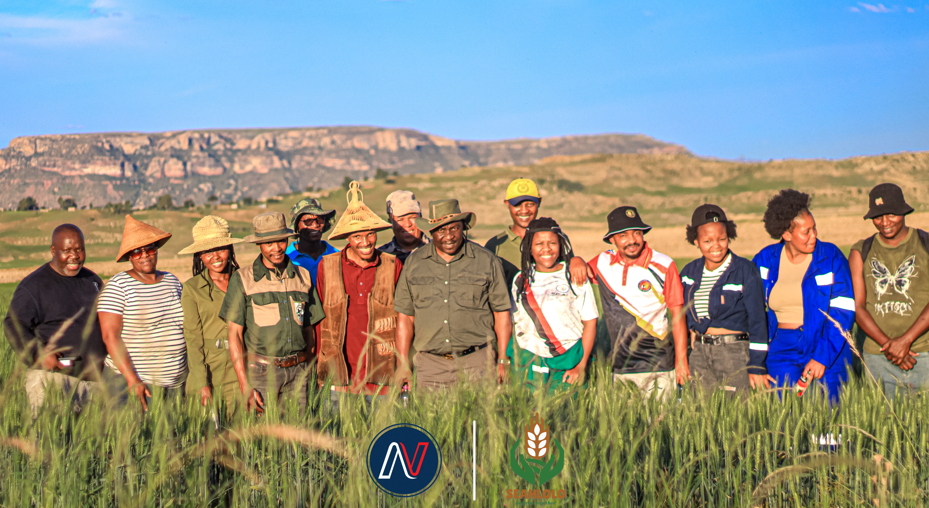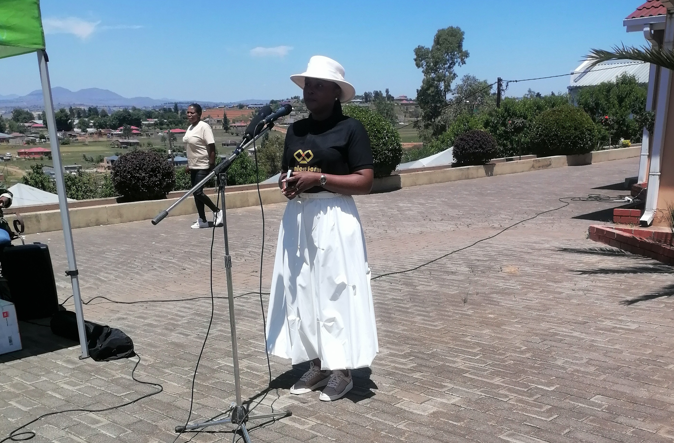Rows of greenary stretch confidently beneath shade nets.
Tomatoes ripen even in winter.
At Foles Evergreen Farm, consistent vegetable production is the order of the day.
What began with four tiny plots feeding office colleagues has become a farm that feeds schools, supermarkets, and street vendors all year round.
Led by Mrs Mamafole Rakuba of Ha Potsane in Mohale’s Hoek, Evergreen Farm paints a story of persistence, learning, and support and proof that with the right backing, farmers in Lesotho can defy the seasons.
Rakuba recounts how her journey began not on the land, but in the corridors of Nedbank Lesotho, where she works as an accountant.
During lunch breaks recalls how she would rush to the street vendors nearby, not just to buy but to observe.
“I wanted to learn what customers need, how they buy and how vendors survive,” she says.
“It was an unusual classroom, but it taught me lessons no textbook could: that relationships matter, that customers must be listened to and that agriculture was not just about planting, but about people,” Rakuba says.
Her earliest harvests were modest, green peppers and a few vegetables sold to colleagues.
But demand grew, and so did her courage.
Soon her baskets were not enough, and she began to expand, balancing ledgers by day and planting by evening.
“Selling on the street may look low to others but it gave me insights on customers, their purchasing styles and the challenges of being a vendor,” she notes.
The turning point came when she heard whispers about SADP II, a programme designed to help farmers adopt climate-smart agriculture and grow beyond survival.
At first, she was told it was not for people with jobs and discouragement almost made her give up, but a client at the bank urged her to try again, insisting SADP worked with everyone committed to farming.
This time, she walked into their offices, asked relevants questions to be informed, the she applied.
The result was the breakthrough she had been waiting for, her application succeeded.
“The SADP II brought more than funding. It brought tools that turned my vision into reality. They bought boreholes to ensure water supply was consistent. They helped me procure shade nets to protect crops and provided me with technical support that transformed mistakes into mastery.
“Irrigation specialists came to help me insert drips properly,” she recalls noting, “without them, this quality of production would not be possible.”
From that moment, Evergreen Farm began to change. Tomatoes, once confined to Lesotho’s short summers, now thrived under frost blankets in winter too.
Winter yields reached over 100 boxes, while summer harvests soared beyond 500.
The farm supplies Shoprite, schools, vendors, and the surrounding community.
For the first time, it was possible to imagine tomatoes in Lesotho as a year-round crop.
The story is not just about crops, but about people. Four permanent workers keep the farm alive and up to twenty more are employed during peak times.
One student, after working there, was inspired to apply to the National University of Lesotho to study agriculture she says.
“I am proud to create jobs and food at the same time. Helping a young person to see the future in farming is a milestone for Evergreen Farm.”
Visitors at the recent field day saw more than tunnels and rows of vegetables. They saw resilience. They saw a model of what Lesotho’s agriculture could become.
Officials, students, and farmers walked through the plots as the farmer explained differences between tunnels, shade nets, and open fields.
Hygiene was highlighted as part of farm management.
“As people we also carry infections that can affect crops. Hygiene is not only for hospitals, but for farms too,” she reminded them.
For SADP II, Evergreen Farm is a demonstration of what the programme stands for.
The Ministry of Finance’s Masebekane Makhabeli praised the farm for breaking Lesotho’s dependence on imports. “This farm proves that agriculture is not only about survival, but about growth and resilience in the face of climate change,” she said.
But even with success, the Rakuba insists no one walks alone.
Associations and unions, she explained, have been central to her journey.
“As a farmer if you walk alone, you cannot find success because agriculture has many challenges that need one to have supportive colleagues or else one may give up.” “Associations became more than groups, they became my safety nets, places of encouragement, and sources of shared knowledge,” she describes.
“The significance of Fole Evergreen Farm reaches beyond Ha Potsane. It represents a shift in mindset. It shows that Lesotho does not have to wait for imported vegetables when local production can thrive with the right systems.”
“ This journey demonstrates that farming is not punishment but opportunity, not seasonal, but sustainable. It proves that agriculture, when treated as a business, can yield profits of 500% or more, as the Minister of Agriculture himself often reminds,” Lereko Masupha from the Agriculture Information Office said.
As the sun set over the field day, Masupha summed up the meaning of the farm.
“This is the answer to food security for the whole nation,” he says, stressing that every green row at Evergreen tells that story.
Sponsored by



